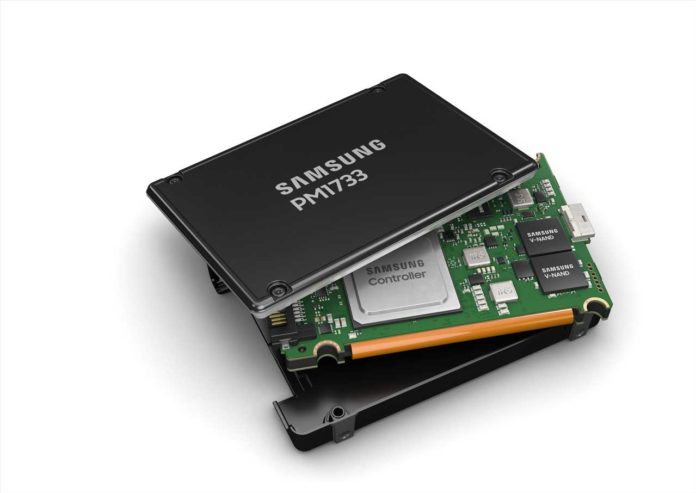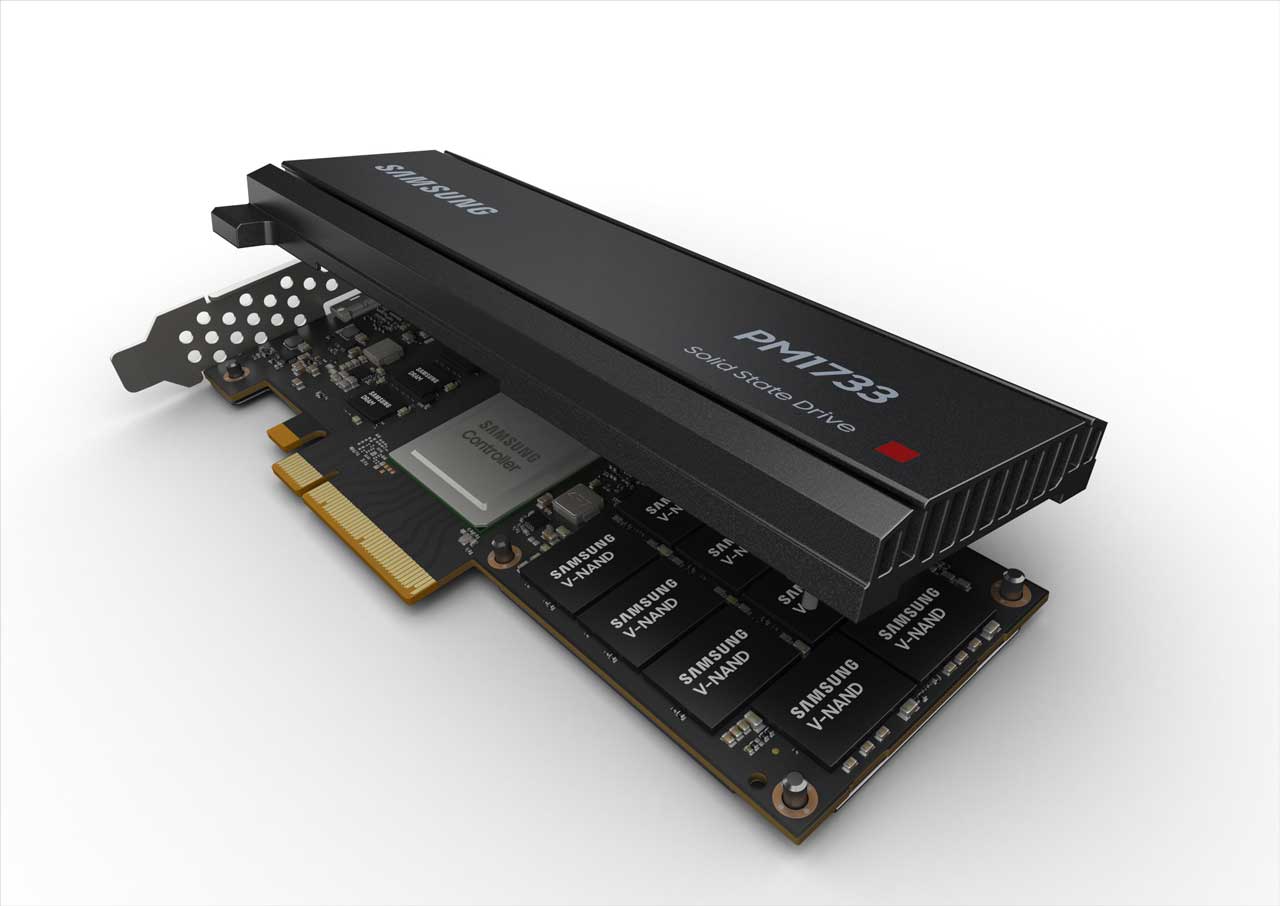Samsung Electronics has recently announced its latest innovations: PCIe Gen4 SSDs, that are industry’s highest-performing SSDs. The PCIe Gen4-based PM1733 and PM1735 SSDs offer 2x more speed than the speed of the Gen3 SSDs.
PCIe stands for Peripheral Component Interconnect Express. Through these innovations, Samsung has opened up a new paradigm in SSD performance.
The 12.8TB PCIe Gen4 NVMe SSD (PM1735) offers almost 14 times the sequential performance of a SATA-based SSD, with 8GB/s for reading operations and 3.8GB/s for writes. Random speeds measure at 1,450,000 IOPS for reads and 260,000 IOPS for writes.
On the other hand, the PM1733 SSD offers single and dual-port options to support server and storage applications, as well as multi-stream writes and SR-IOV.
The company has offered these SSDs in 19 models. What’s more, these are available in two form factors – 2.5-inch (U.2) and HHHL (card-type) – with capacities ranging from 0.8TB to 30.72TB to suit the diverse needs of OEMs worldwide.
The drives additionally ensure the endurance of one or three drive writes per day (DWPD) over five years.
Kye Hyun Kyung, executive vice president of Memory Solution Product & Development at Samsung Electronics said, “We are combining breakthrough speeds and capacities with revolutionary software solutions as we accelerate expansion in the premium SSD market. We plan to introduce additional innovation led by our most advanced (sixth-generation) V-NAND in helping to trigger a lot more growth in the global IT market.”
What’s more interesting is, the SSDs integrate three key software technologies: Fail-in-place, SSD virtualization, and V-NAND machine learning.
FIP technology ensures that SSDs maintain regular operation even when errors occur at the chip level, enabling a never-dying SSD. Samsung’s FIP software can detect a faulty chip, scan for any damage in data, then relocate the data into working chips. Meanwhile, the technology allows the drive to cope with failure.
The SSD virtualization technology allows a single SSD to be subdivided into a maximum of 64 smaller SSDs, providing independent, virtual workspaces for multiple users.
The V-NAND machine learning technology serves to precisely anticipate and check cell characteristics. It also recognizes any variation among circuit patterns through big data analytics. This guarantees superior data reliability as expanding SSD speeds represent a challenge in reading and verifying data through the extremely rapid voltage pulses.
Hyun Kyung said, “We are planning to expand the application of its innovative software technologies into a much wider array of server and datacenter SSDs to actively address global customers’ needs and further strengthen its edge in the premium memory market.”


